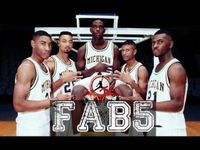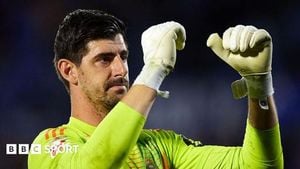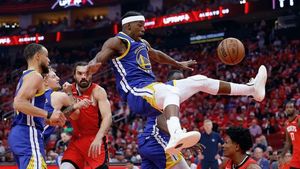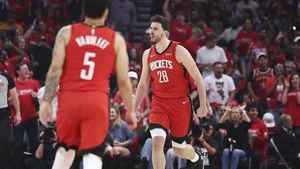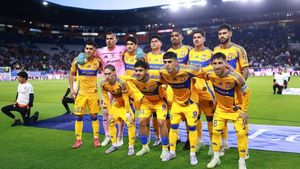The Fab Five—Chris Webber, Jalen Rose, Juwan Howard, Jimmy King, and Ray Jackson—were one of the most celebrated college basketball recruiting classes in NCAA history. Arriving at the University of Michigan in 1991, they transformed the culture of college basketball with their swagger, baggy shorts, black socks, and unapologetic confidence. They captivated fans with their flashy play, brash attitudes, and hip-hop influence, making them cultural icons.
However, while their impact on basketball culture is undeniable, their actual success on the court remains controversial. Despite reaching two consecutive national championship games (1992 and 1993), they never won a title. When examined critically, the Fab Five's legacy appears to be built more on hype than substantive achievements. This article explores why the Fab Five—while immensely talented and influential—were ultimately overrated.
The most glaring reason the Fab Five is overrated is simple: they never won a national championship. In two years of dominance and Final Four appearances, they fell short both times. For a team that entered with so much hype and potential, failing to win even one championship raises serious questions about whether they lived up to their billing. Other legendary college teams, such as the 1982 North Carolina Tar Heels (led by Michael Jordan) or the 1996 Kentucky Wildcats (loaded with NBA talent), secured championships to cement their greatness. The Fab Five never did.
Chris Webber was the most talented player of the group, but his defining moment was the infamous timeout call in the 1993 championship. With Michigan down two points in the final seconds, Webber attempted to call a timeout when the team had none remaining, resulting in a technical foul and essentially handing the title to North Carolina. This mistake highlights a broader issue with the Fab Five: their immaturity in crucial moments. They had all the talent in the world, but their lack of composure under pressure often cost them. Championship teams are defined by poise in clutch situations. The Fab Five faltered when it mattered most.
Despite their talent, the Fab Five never dominated the regular season in a way that suggested they were truly the best team in college basketball. Their inability to claim a Big Ten championship or consistently perform at the highest level across the season suggests that, while spectacular, they weren’t the dominant force they were hyped up to be.
While Juwan Howard and Chris Webber turned into solid NBA players (Webber becoming a superstar), the other three members—Jalen Rose, Jimmy King, and Ray Jackson—did not have spectacular pro careers. The lack of sustained individual success suggests that the Fab Five may not have been as historically great as they were perceived to be. When you compare them to legendary college teams with future NBA Hall of Famers, the discrepancy is clear.
One of the biggest stains on the Fab Five's legacy is the NCAA scandal that led to their records being vacated. Chris Webber accepted money from booster Ed Martin, leading to severe sanctions against Michigan. As a result, Michigan officially does not recognize its Fab Five Final Four appearances. While the NCAA’s rules on amateurism were controversial, the scandal cast a shadow over the Fab Five’s accomplishments. A truly legendary team doesn’t need external controversy to be remembered—it should be remembered for winning.
There’s no denying that the Fab Five changed the aesthetics and attitude of basketball, but did they truly change the game? Their baggy shorts, black socks, and hip-hop culture influenced how players dressed, but their impact on actual basketball strategy was minimal. Other teams in NCAA history—like the 1980s Georgetown Hoyas or the 2000s Florida Gators—also had cultural significance while winning championships.
The Fab Five were cool, but they weren’t game-changers in terms of how basketball was played. The Fab Five were undoubtedly entertaining, talented, and trendsetting, but when measured by actual accomplishments, they fall short of their legendary status. Their influence on basketball culture is undeniable, but their legacy as one of the “greatest teams” is largely built on media hype rather than actual dominance. True greatness in college basketball is defined by winning titles, and by that metric, the Fab Five were more flash than finish.
Their place in history is secure, but they were, without a doubt, overrated.
